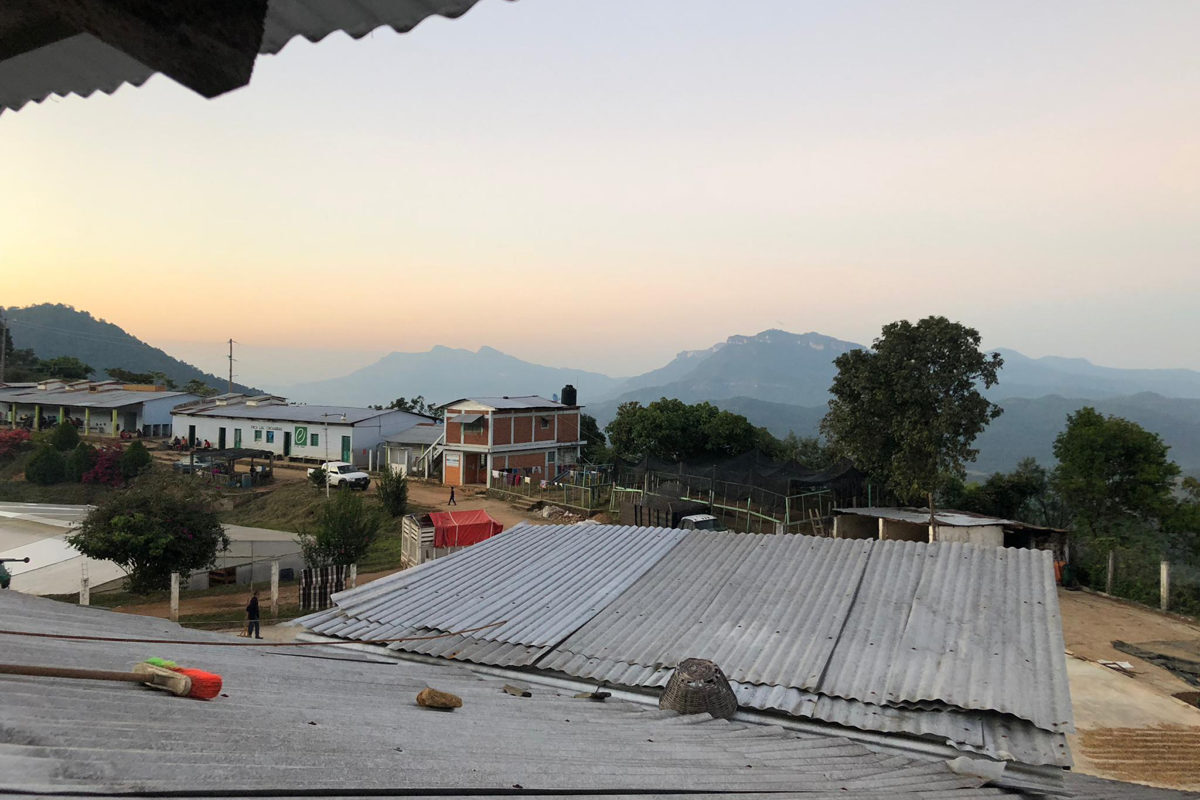
Shortly after Christmas we travelled to Mexico to get to know the country and people and to evaluate a possible cooperation with a coffee producer. Already more than 6 months earlier we discovered E-Café Chiapas on Instagram, a reasonably small producer with three own farms and a processing site. E-Café Chiapas also works with very small coffee farmers who operate Microlots. And they produced one of the winning coffees for the Cup of Excellence Mexico 2018 with a cupping score of 89.6.
Getting in touch was easy. Yadira from E-Café Chiapas gave us a lot of information about the company, Mexican coffee and a possible visit in the country. After a few emails we found out that the owner and CEO from E-Café Chiapas originally came from Korea and that Yadira, who is Mexican, used to work and study in Korea, same as Dennys. That was a big surprise.
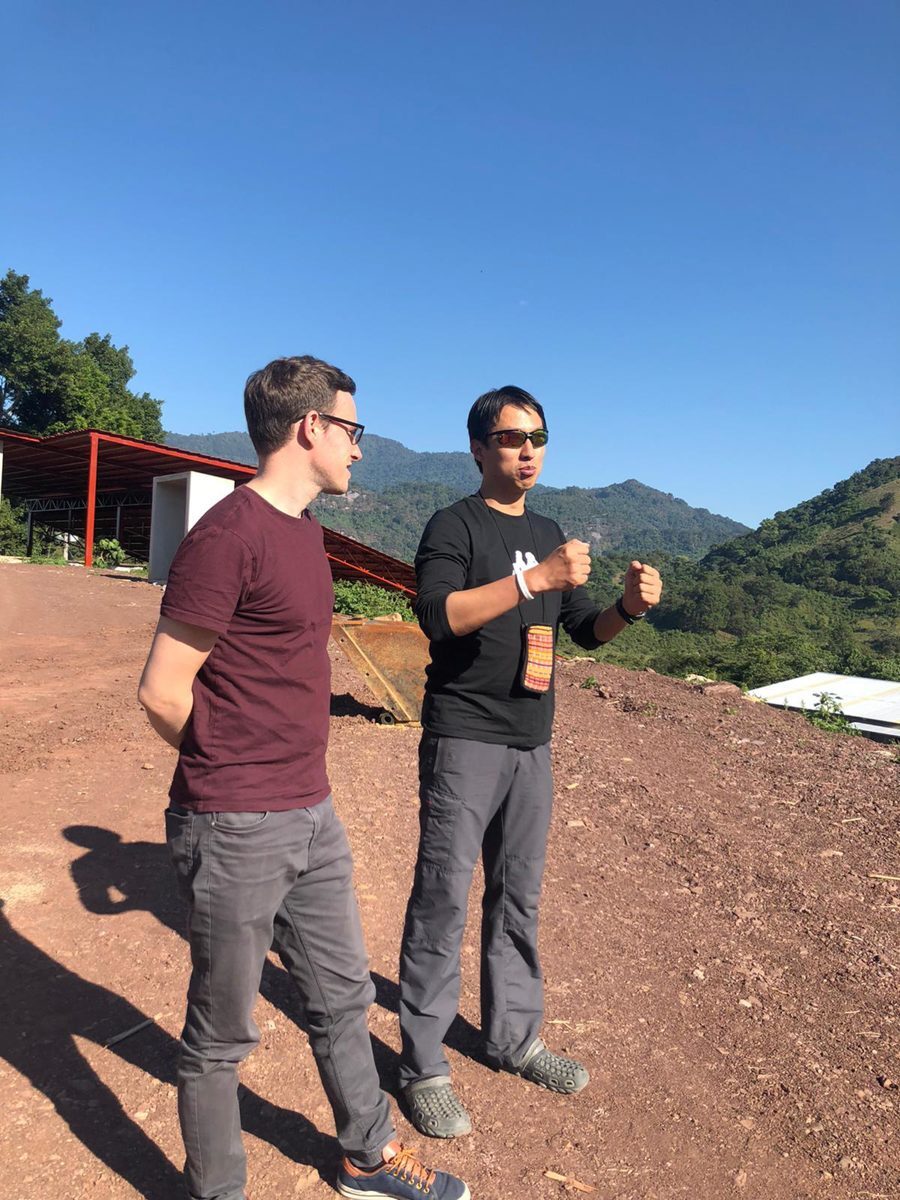
Finca Las Chicharras
Finally I arrived in Mexico. After an impressive breakfast and staying a night in Tuxtla Gutierrez the adventure could start. Chris and Yadira picked me up at the hotel and we drove up to the mountains of Chiapas for a few hours, passing by the coffee village Jaltenango and finally arriving at Finca Las Chicharras. There we met with the director of the farm and the pickers, who mostly came from neighbouring Guatemala and spend a few weeks or months for work in Mexico every year.
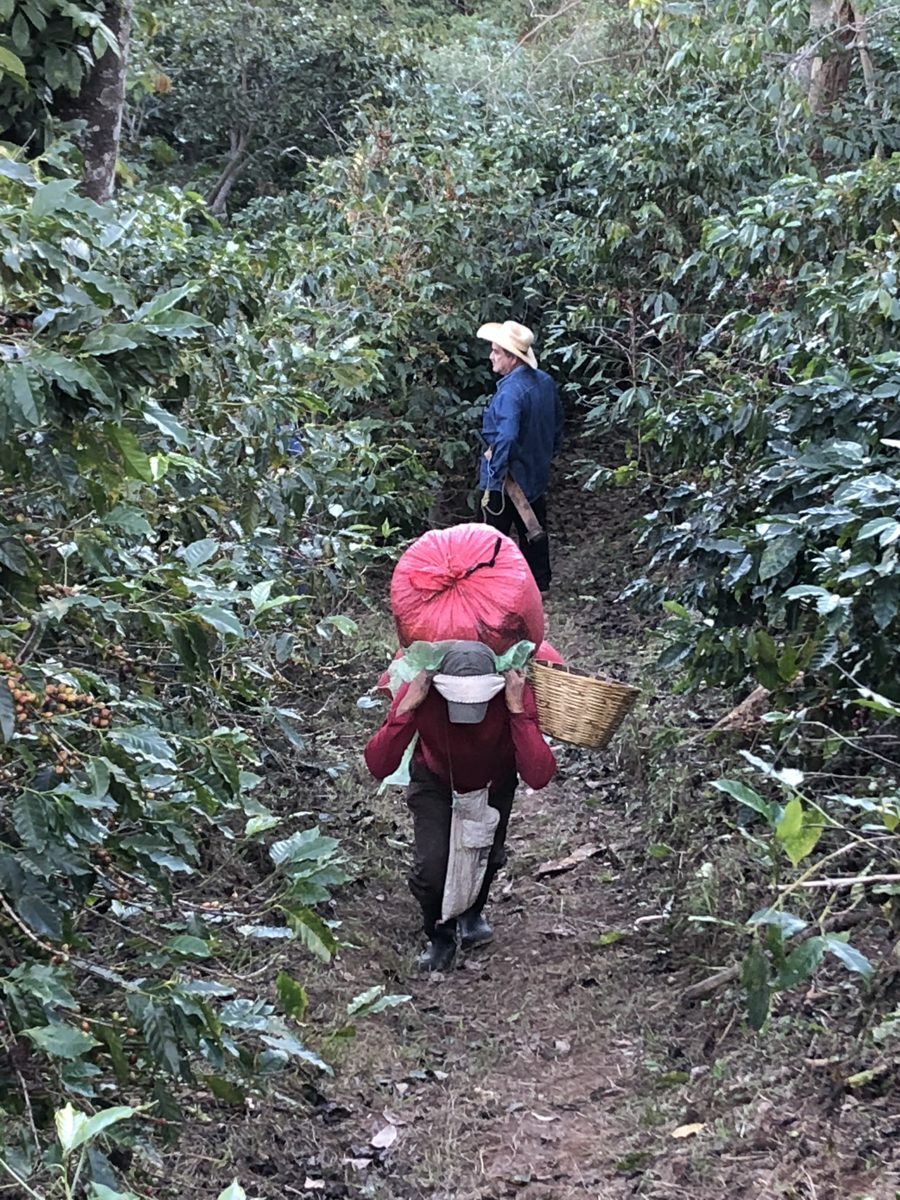
Pickers at work at Finca Las Chicharras
The work is exhausting and cannot be done by machines, due to the steep and uneven terrain. As for most Arabica varieties, the coffee plants need to grow at least on a certain altitude (Las Chicharras: 1250-1650). Only this guarantees ideal conditions for quality and productivity. Here varieties such as Bourbon, CAtuai, Caturra, Catimor, Obata, Geisha and Maragogype are being cultivated.
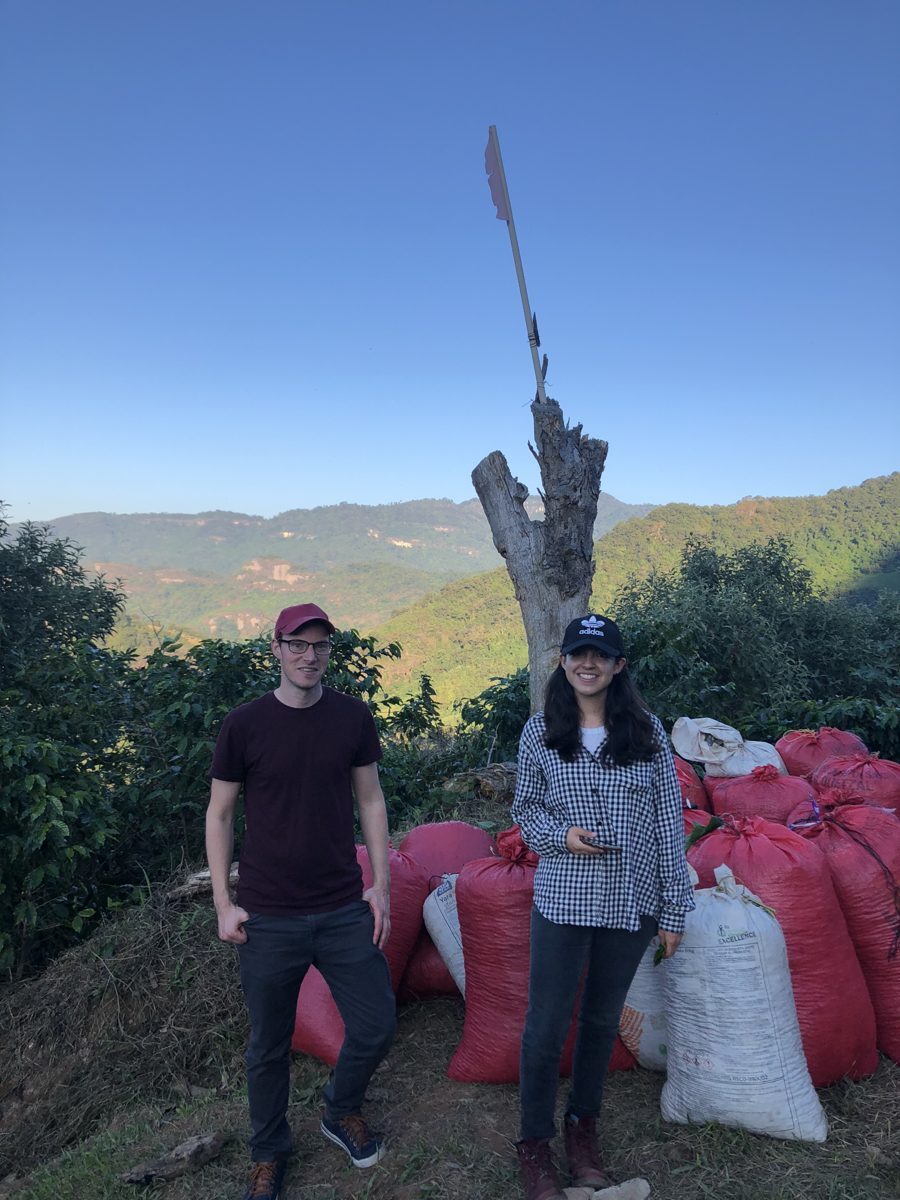
Late Harvest
The harvest time just started, quite late compared to other years, and the beginning of the harvesting season just matched with Christmas. Normally the harvest starts in early December and ends mid-March. Due to Christmas, it was not easy to find enough pickers. Even though the salary is quite high compared to other farms in the region, picking coffee is hard labour. By the way, the Christmas time in Mexico offers really unusual sights for us, who are used to snow and fir-trees: Christmas trees, snow men and lots of lights at 25 to 30 degrees celsius. However, in the Chiapas mountains it gets significantly colder than that. Las Chicharras is on 1250 to 1650 meters above sea level. The farm is split into areas, in each of which one or several varieties are cultivated under similar conditions. Each area has been named after a city. First for harvest this year, what a surprise: Seoul.
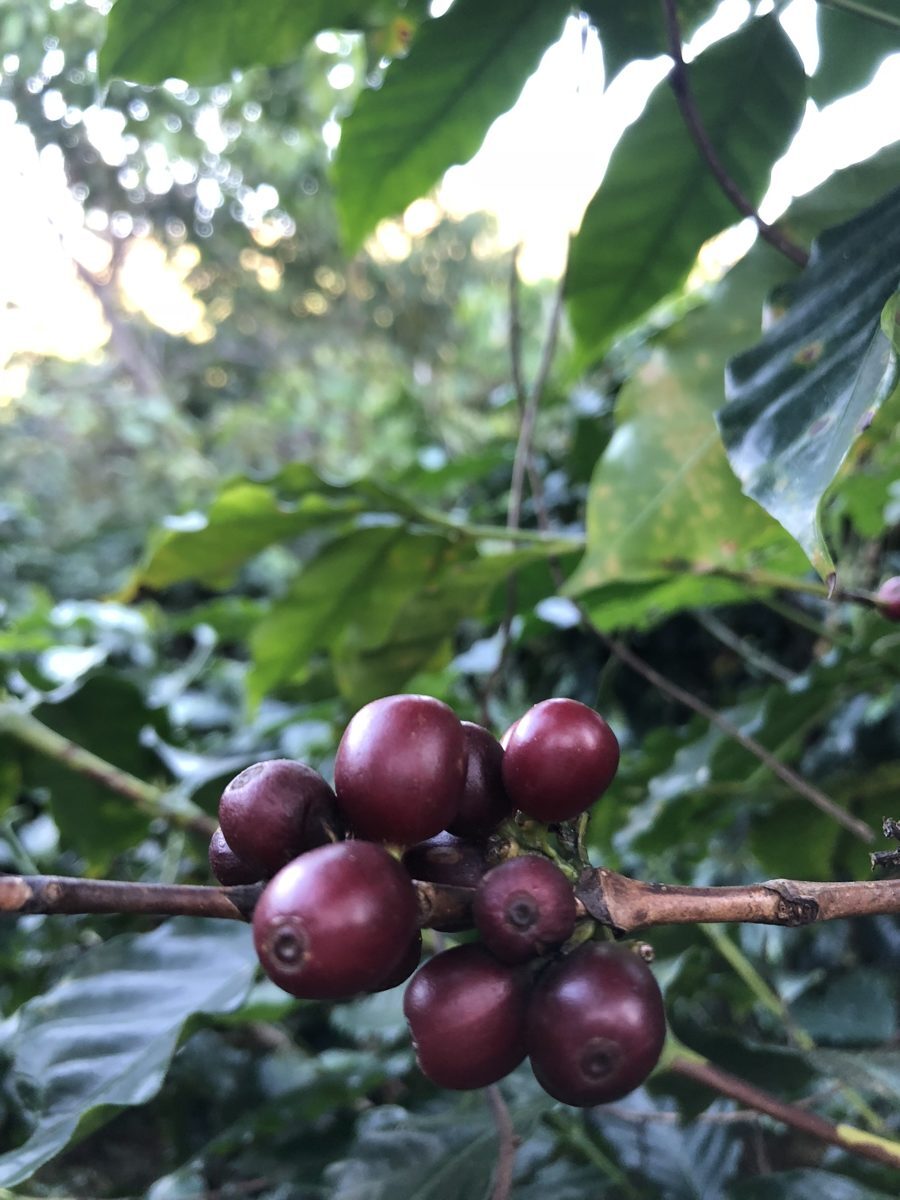
Salary by Weight
Ripe coffee cherries were hanging on the trees on Finca Las Chicharras. The pickers had to hurry up to finish the harvest on time. The work is rewarded by the weight carried to the washing station.
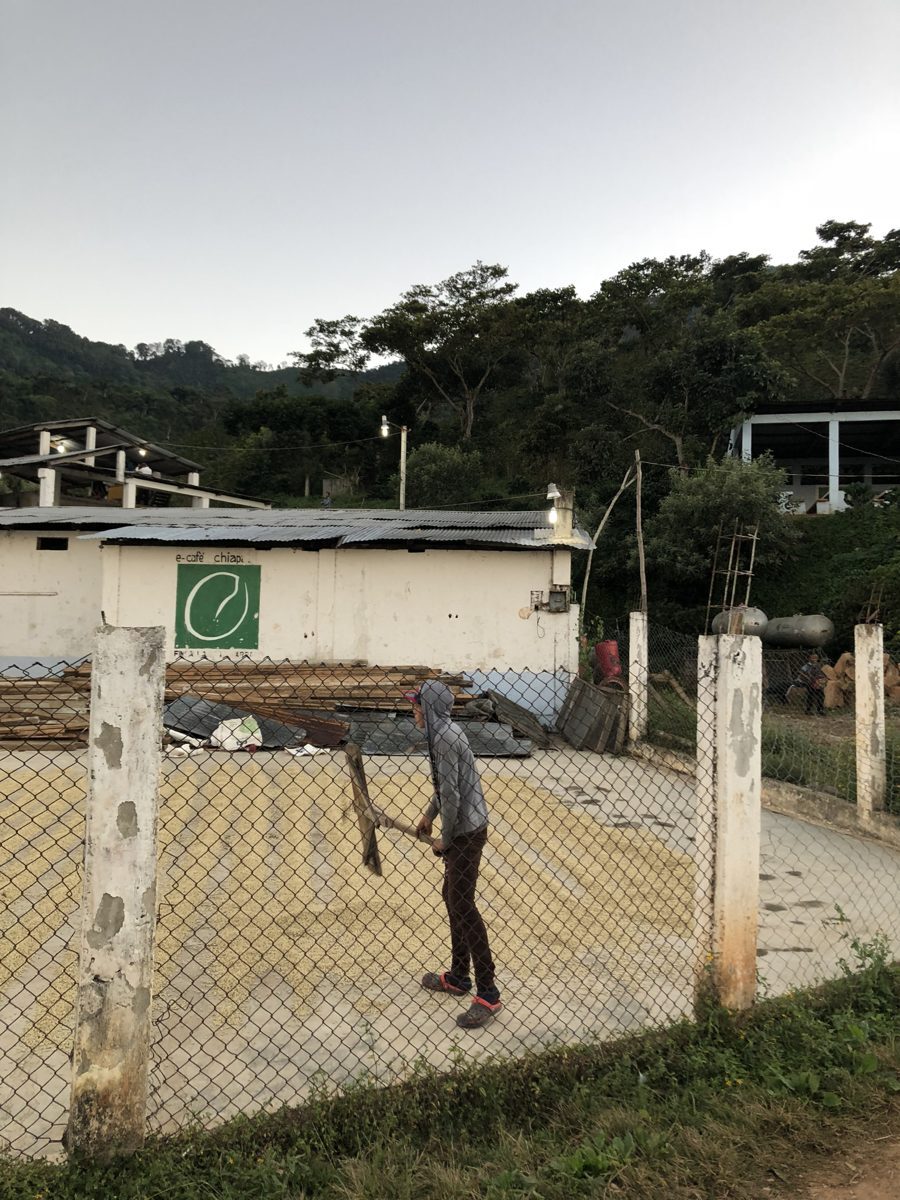
Mostly Washed Coffees
During the harvest season the coffee farm is very busy. The pickers bring the collected cherries – packed in big bags – to the station, where they are washed. Currently, the bigger part of the harvest is being washed and not processed as «natural» coffee. After washing, the beans have to be dried. Therefore, E-Café Chiapas is building new drying warehouses, which will help to speed up the drying process, as the air humidity is quite high in this region.
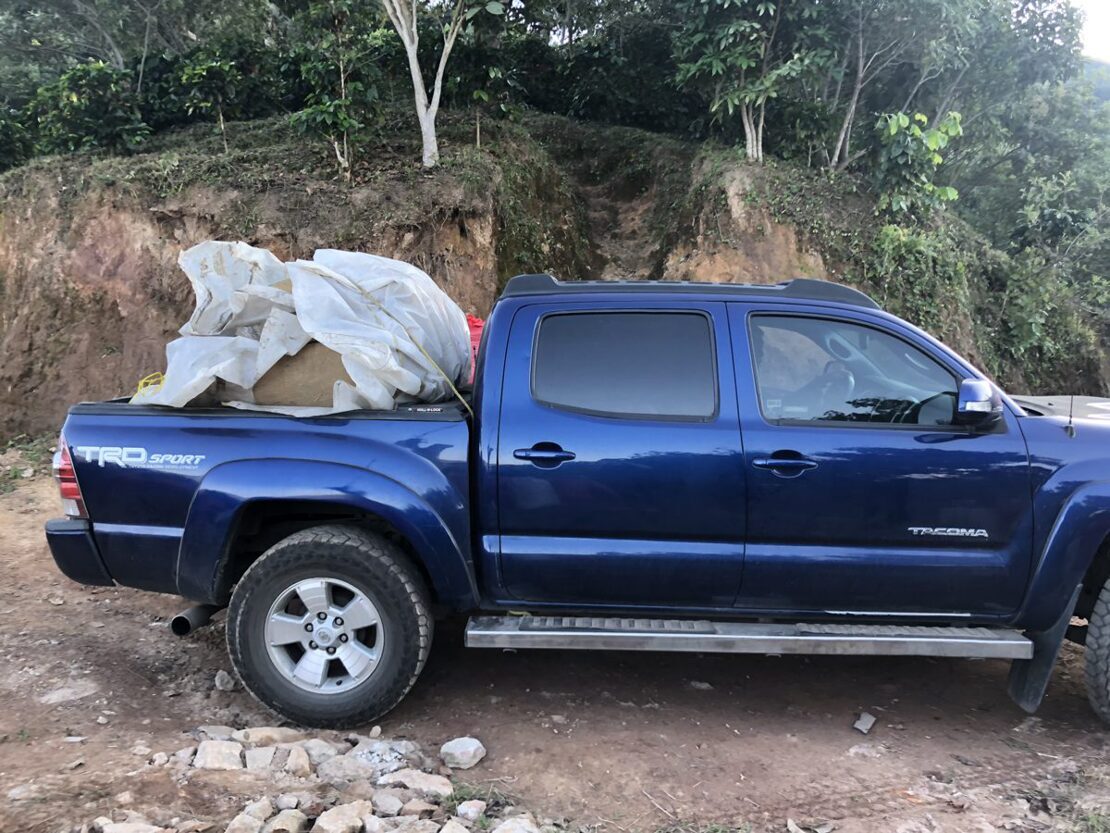
Campus
After viewing the Finca Las Chicharras we drove back, loaded with 8 big bags of dried coffee beans, to the valley in the direction «Campus». I was excited to see the campus, about which Chris and Yadira have talked a lot in the car. We have been speaking English and Korean all the time in the car, as all of us were able to speak both languages, more or less. Unfortunately, I do not speak Spanish, otherwise, we would have had even three choices of languages. Chris came to Mexico four years ago with his family and is leading the coffee department at the campus. There, besides a huge processing plant, you can find a school, guest rooms, student dorms, apartments for employees and E-Café Chiapas' and related companies' offices. The school is funded through revenues from coffee and other product sales. It is attended by Mexican children of all levels and ages.
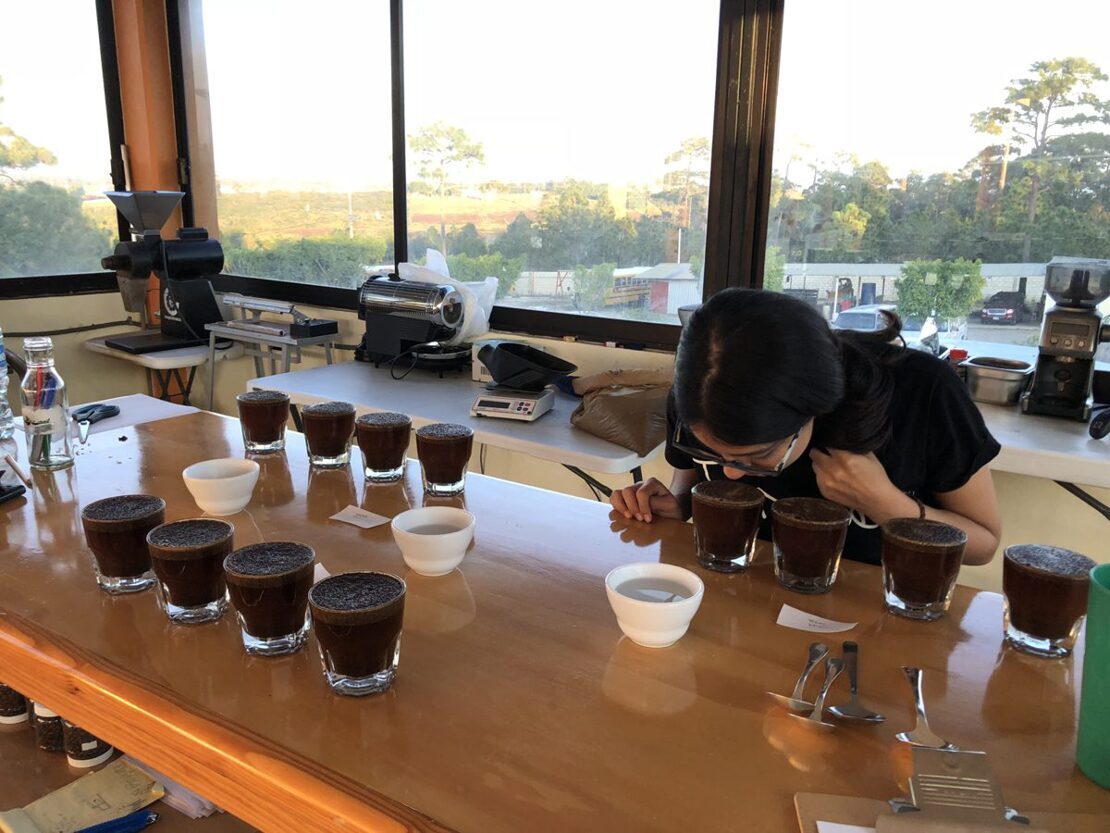
Cupping
After the long drive from the coffee farm to the campus it was not yet time to rest. A cupping was on the program. An early harvest sample convinced me the most. The flavors were versatile, ranging from citrus fruits to a slight berry taste. It was a light and refreshing coffee, with a pleasant acidity. While sipping it from the cupping spoon I was thinking «I would love to serve this coffee as a hand drip at our new café in Bern».
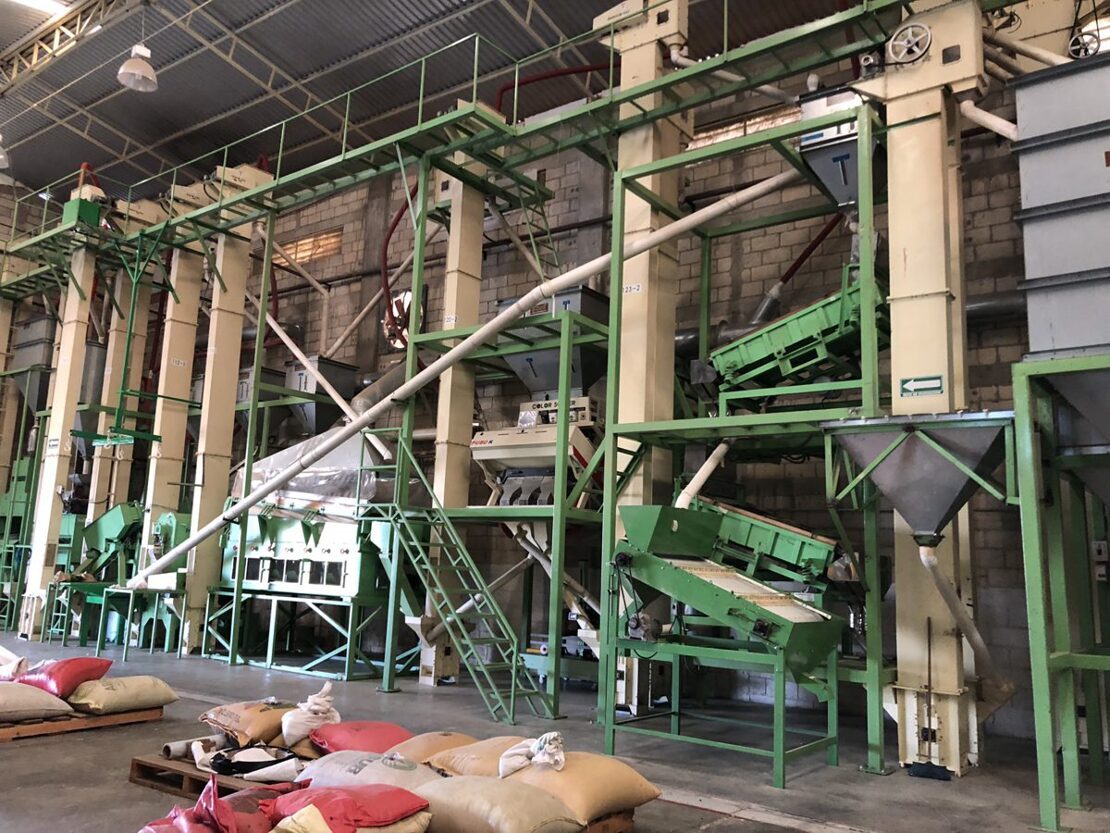
Processing
On this machine the dried coffee is being processed, sorted and packed into big bags. The machine sorts the coffee by size, color and shape and classifies the coffee into different grades. Depending on the grade the coffee is being used for different purposes. For specialty coffee, only grade 1 is acceptable. The machine is so huge that it is difficult to process less than a ton of coffee at once. It is also being used for coffee from small farmers in the region.
We will roast and test a few samples of Mexican coffee and we are working on tackling the challenges of shipping and logistics for small order quantities. We hope, to be able to offer you excellent coffee from E-Café Chiapas in our café and online-shop very soon!
Many thanks to Chris and Yadire for their impressive hospitality and openness! We are looking forward to a great collaboration.
